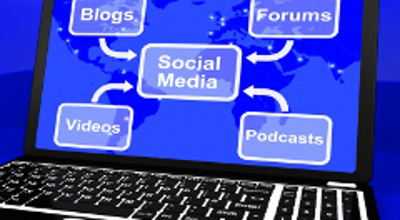
Ever look at the clock and realize you’ve spent the last two hours surfing the Internet, reading Twitter posts or commenting on Facebook?
In this social media-obsessed age, typical water-cooler banter and pointless meetings are no longer the greatest time wasters at work. A recent uSamp study found that nearly 60 percent of workplace distractions involve social networks, text messaging, instant messaging or email. In fact, navigating between multiple tabs and windows to keep an eye on a variety of applications is a huge distraction in itself.
In the end, nearly half the employees surveyed in the study said they worked only 15 minutes or less without getting interrupted or distracted. More than half said they wasted at least one hour every day due to distraction. We live in a disruptive, tech-obsessed world.
That’s the data. But data rarely motivates or inspires us to make the types of behavior modifications and lifestyle changes we need to eliminate the distraction of social media. We have to choose to be in control of how much time we spend—and how we spend it—on social media.
I know people who have punted and just said no to using social media. While that is a solution, it’s not a very relevant one for those of us who do want to be effective in connecting with people near and far.
A better one is making a conscious choice about how you use your time moment by moment. Here are my top actions for avoiding social media and personal technology distractions:
- Turn off alerts and notifications.
- Check e-mail only three times a day.
- Use a second monitor (to decrease window-switching time).
- Schedule regular blocks of time to turn off my smartphone.
In a video titled Slow Tech, Google Ventures general partner Joe Kraus made these comments about our constant culture of distraction and the crisis of being disconnected and losing ourselves: “We all face distractions on a daily basis. Distractions not only lower our productivity; they also increase our stress. You probably already know what distracts you the most—phone calls, emails, instant messages, Internet browsing, interrupting co-workers and so on. Strategies like scheduling email checks, turning off your phone and leaving the office for a quieter environment may eliminate distractions so that you get more done.”
In an article he wrote on avoiding social media distractions, PC World contributor David Daw suggests turning off the push notifications on your smartphone for social media updates from sites such as Facebook and Twitter. “Setting up a way to tune out mobile email notifications is well worthwhile,” he says.
To keep from getting sucked into a vortex of endless surfing the web, San Francisco-based writer and publisher Genevieve DeGuzman offers three tips:
1. Close news and social media sites. Another helpful tip is to create an aggregated feed of all your favorite news sites. This helps you avoid wasting time wandering the Internet for headlines and updates.
2. Close your Internet browser when you’re working. The precious seconds it takes to load the browser when you feel tempted to go online may be just the moment you need to become conscious of the time you’re wasting. If you must be logged in on a continual basis, try restricting yourself to three or four browser tabs for work-related sites. Close everything else.
3. Try online quarantine. For extreme measures, install Freedom, Anti-Social, or RescueTime, which put a temporary barrier on your access to certain websites on the net. Add all your social media sites to the blacklist.
More than at any other time in history, technology—specifically social media—affords us the opportunity to connect faster and in unprecedented ways. We can meet and talk to people we otherwise would never have met. But with that opportunity comes the responsibility to steward these resources in productive and healthy ways.
DJ Chuang hosts the Social Media Church podcast, a place for conversations with church leaders about social media. He’s the editor of two books, Asian American Youth Ministry and Conversations: Asian American Evangelical Theologies in Formation. He has been blogging at his personal website (djchuang.com) since 1999, curating many links to resources pertaining to churches, technology and multiethnic or Asian-American ministry.
Get Spirit-filled content delivered right to your inbox! Click here to subscribe to our newsletter.
Dr. Mark Rutland's
National Institute of Christian Leadership (NICL)
The NICL is one of the top leadership training programs in the U.S. taught by Dr. Mark Rutland. If you're the type of leader that likes to have total control over every aspect of your ministry and your future success, the NICL is right for you!
FREE NICL MINI-COURSE - Enroll for 3-hours of training from Dr. Rutland's full leadership course. Experience the NICL and decide if this training is right for you and your team.
Do you feel stuck? Do you feel like you’re not growing? Do you need help from an expert in leadership? There is no other leadership training like the NICL. Gain the leadership skills and confidence you need to lead your church, business or ministry. Get ready to accomplish all of your God-given dreams. CLICK HERE for NICL training dates and details.The NICL Online is an option for any leader with time or schedule constraints. It's also for leaders who want to expedite their training to receive advanced standing for Master Level credit hours. Work through Dr. Rutland's full training from the comfort of your home or ministry at your pace. Learn more about NICL Online. Learn more about NICL Online.


